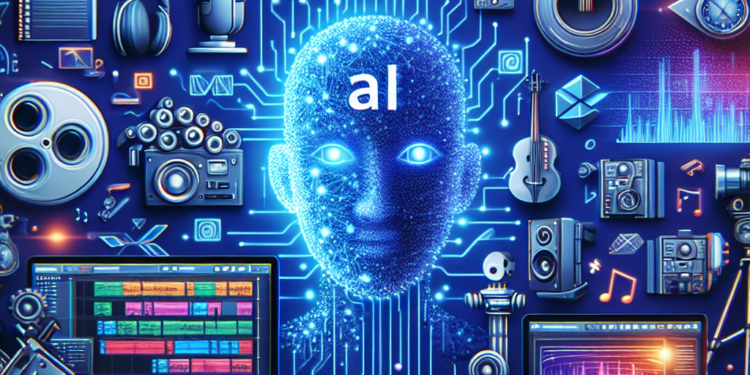In recent years, artificial intelligence (AI) has revolutionized many industries, and the entertainment sector is no exception. AI innovations in entertainment content creation have transformed the way movies, TV shows, music, and video games are produced, leading to more creative and compelling content than ever before. In this article, we will explore some of the most exciting AI innovations in entertainment content creation, and how they are shaping the future of the industry.
One of the most notable AI innovations in entertainment content creation is the use of AI algorithms to generate scripts and storylines for movies and TV shows. Traditionally, screenwriters and filmmakers have spent countless hours crafting scripts and developing storylines, but with the help of AI, this process has become much more efficient. AI algorithms can analyze vast amounts of data from existing content to generate new ideas and plotlines, saving time and resources for creators.
For example, a company called ScriptBook has developed an AI platform that can analyze scripts and predict their success at the box office. By analyzing elements such as character development, dialogue, and plot structure, ScriptBook can provide valuable insights to filmmakers and producers, helping them make informed decisions about which projects to greenlight. This not only streamlines the scriptwriting process but also increases the chances of a movie’s success in the competitive entertainment industry.
Another area where AI is making waves in entertainment content creation is in the field of music production. AI-powered tools can now compose music, generate lyrics, and even mimic the styles of famous artists, allowing musicians and producers to experiment with new sounds and genres. For example, Amper Music is a platform that uses AI algorithms to create custom music tracks for filmmakers, video game developers, and other content creators. Users can choose from a range of musical styles and moods, and Amper Music will generate a unique composition in seconds.
AI is also being used to enhance the visual effects in movies and TV shows. By using machine learning algorithms, visual effects artists can create hyper-realistic CGI characters and environments that seamlessly blend with live-action footage. One of the most well-known examples of this technology is the use of deep learning algorithms to de-age actors in films such as “The Irishman” and “Gemini Man.” These AI-powered techniques allow filmmakers to create stunning visual effects that were previously only possible with extensive manual labor.
In the world of video games, AI is revolutionizing the way games are created and played. Game developers are using AI algorithms to create more immersive and dynamic worlds, where characters and environments can adapt to the player’s actions in real-time. This level of interactivity and personalization is revolutionizing the gaming industry, attracting a new generation of gamers who crave unique and engaging experiences.
For example, AI-powered procedural generation algorithms can create vast and detailed game worlds without the need for human input. This allows game developers to focus on designing gameplay mechanics and storytelling, rather than spending countless hours on manual world-building. AI can also be used to enhance the player experience by dynamically adjusting game difficulty based on the player’s skill level, creating a more challenging and rewarding experience for gamers.
AI innovations in entertainment content creation are not limited to traditional media such as movies, TV shows, music, and video games. AI is also being used to create innovative and interactive experiences in virtual reality (VR) and augmented reality (AR). These technologies are pushing the boundaries of storytelling and immersion, allowing users to step into immersive worlds and interact with characters in ways that were previously unimaginable.
For example, AI-powered chatbots can provide personalized and interactive experiences for users in VR and AR environments, creating a more engaging and immersive experience. These chatbots can be programmed to respond to user input, adapt to their preferences, and even learn from their interactions to provide more personalized and engaging experiences over time. This level of interactivity and personalization is transforming the way users engage with entertainment content in VR and AR, opening up new possibilities for storytelling and world-building.
In conclusion, AI innovations in entertainment content creation are revolutionizing the way movies, TV shows, music, and video games are produced and consumed. From generating scripts and composing music to enhancing visual effects and creating immersive gaming experiences, AI is reshaping the entertainment industry in ways that were once thought impossible. As AI technology continues to evolve and improve, we can expect to see even more exciting and innovative uses of AI in entertainment content creation in the years to come. So, buckle up for a future where AI algorithms are not just supporting creators but becoming creators themselves in the ever-evolving landscape of entertainment.













